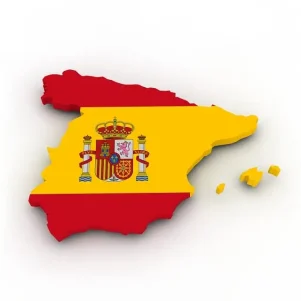Mergers and spin-offs of companies are regulated in Law 3/2009, of 3 April, on structural modifications of commercial companies. This law establishes the definition of each of these transactions to differentiate them:
What is a company merger?
Law 3/2009 defines a merger as the process in which two or more existing companies come together to form a new single company, by transferring the whole assets of the merging companies to the new company. The shareholders of the merging companies will receive shares, holdings or quotas in the new company. This new company could be newly created or one of the merging companies.
In other words, a merger is an operation in which two or more companies become one.
Mergers involve the transfer en bloc of assets and liabilities and the attribution of shares, participations or quotas to the partners of the newly created company.
Types of mergers
In terms of the result
- Pure merger, also known as a merger by creation: formation of a new company and extinction of the merged companies.
- Merger by absorption: when two or more companies merge into a single existing company. In this type of merger, the absorbed companies cease to exist while the absorbing company continues to operate.
You can find more information on these types of mergers here.
Focusing on business strategy
- Vertical merger: when two or more companies from different production niches merge their assets to improve efficiency and productivity.
- Horizontal merger: when two or more companies in the same sector merge to develop new innovative solutions, reduce or weaken competition, or gain market share, among other reasons.
Law 3/2009 outlines the process and regulations to carry out a merger, covering specific details such as the exchange of shares or participations between the merged companies and the new resulting company. It also determines the number of shares or participations corresponding to the new company shareholders in exchange for their shares or participation in the merged companies.
It also regulates and defines the so-called intra-community cross-border mergers as those mergers involving two companies created in one of the European Economic Area States, one of which is subject to Spanish law.
What is a company spin-off?
A spin-off consists of the total or partial separation of the assets, liabilities and corporate titles, which become part of another existing or newly created company.
The original company may or may not disappear, and the shareholders of the divided company will also be shareholders of the new company.
Law 3/2009 also governs the procedure to follow for spin-offs and their particularities.
Types of spin-offs
Within the division of companies, we can differentiate between total demergers, partial demergers and spin-offs.
- Total division: corresponds to the division of all the assets and liabilities of a company into two or more parts to transfer them to another company. The main feature of this type of spin-off is the extinction of the divided company. The shareholders of the split-up company are entitled to several shares, holdings or quotas in the company receiving the split-up assets in proportion to their respective shareholdings.
- A partial spin-off: transfer of one or more parts of a company’s assets and liabilities to one or more companies. The shareholders of the spin-off company receive shares, holdings or quotas of the company/companies receiving the assets in proportion to their respective shareholdings in the spin-off company. In this case, the share capital of the split-off company is reduced by the necessary amount. Each part of the assets and liabilities transferred must form an economic unit.
- Spin-off: transfer of one or more parts of a company’s assets and liabilities to another company in exchange for shares, stocks or quotas. Each part of the assets and liabilities must form an economic unit, but in this case, the shares are attributed to the hived-off company.
The main risk of each of these transactions is to comply with the procedure laid down in the law. Otherwise, the transaction may be null and void or impossible to formalise. It is, therefore, advisable to obtain specialised legal advice on the matter.
If you need additional information regarding mergers and spin-offs in Spain,





